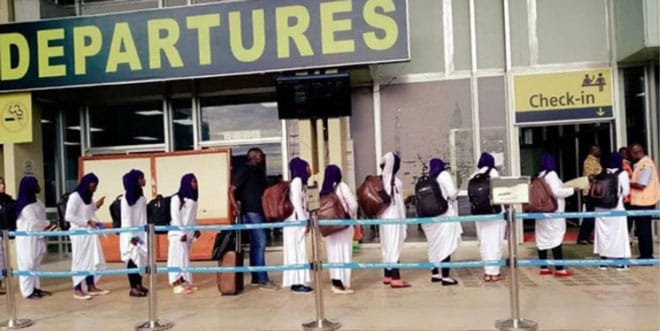Source: Africa Publicity
The United Arab Emirates (UAE) has officially placed Uganda on its 2026 visa ban list amid concerns of the alleged trafficking of several young Ugandan girls to Dubai for prostitution in highly dehumanizing manners.
The ban effectively bars Ugandan citizens from applying for tourist and work visas to the UAE.
The restriction is part of a broader list affecting nine countries—Afghanistan, Libya, Yemen, Somalia, Lebanon, Bangladesh, Cameroon, Sudan, and Uganda—according to a recent UAE immigration circular. Nationals already living in the UAE with valid visas are not affected.
UAE Authorities have described the ban as temporary, though no date for lifting it has been confirmed.
The timing of the ban follows a disturbing BBC investigation exposing the trafficking and exploitation of young Ugandan women in Dubai. The report highlighted operations allegedly run by Charles Mwesigwa, who lured women with promises of legitimate jobs in supermarkets and hotels. Instead, they were forced into exploitative sex work under heavy debt and subjected to degrading fetishes by wealthy clients.
Chilling testimonies included claims that some women died under suspicious circumstances, falling from high-rise apartments. Among them were 23-year-old Monic Karungi and Kayla Birungi, whose families say their deaths were never properly investigated. Karungi’s body was reportedly never repatriated and is believed to rest in an unmarked grave in Dubai. For families like hers, the visa ban serves as a stark reminder of the dangers surrounding Uganda’s labour export.
Uganda sends an estimated 4,457 workers annually to the UAE, making up around 4.5% of the country’s total migrant workforce. Most are employed in domestic roles—housemaids, drivers, security guards, and cleaners—with women representing a significant portion.
Labour migration to the Gulf has long served as a key outlet for Ugandans seeking to escape unemployment. Remittances from these workers are a vital source of income for households and revenue for the nation. Additionally, Dubai plays a crucial role in Uganda’s business and trade networks, with many merchants sourcing goods like electronics, jewellery, and clothing for resale back home.
Dubai is also a popular tourist destination among Uganda’s middle class, offering luxury experiences and leisure opportunities. The visa ban, therefore, affects not just labour migration but also business operations and tourism, with broader economic consequences.
The move has triggered urgent calls for stronger safeguards for Ugandans seeking work abroad.
Diplomats and labour advocates warn that without proper protections and oversight, more Ugandans could be drawn into unsafe migration pathways with devastating consequences.
Uganda’s Ministry of Foreign Affairs has yet to issue a formal statement.
However, diplomatic negotiations with the UAE are expected in an attempt to avert the potential crisis once the ban takes effect. While the UAE maintains that the restriction is temporary, many observers believe the BBC’s revelations may have influenced the decision.
For Uganda—where labour migration to Gulf states is a lifeline for many—the visa ban represents a significant blow. Gulf countries account for a large share of Uganda’s migrant worker remittances, supporting thousands of households.
As exposure of trafficking networks grows, so do demands for better protections. Still, the ban risks shutting down one of the few viable escape routes from poverty for thousands of Ugandan jobseekers.








